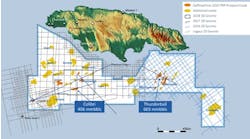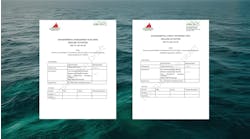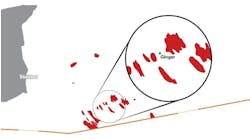OTC 2019: Equinor official describes future challenges, opportunities of Norwegian Continental Shelf
Offshore staff
HOUSTON – The Norwegian Continental Shelf is expected to remain a viable offshore oil and gas play for many years to come, but future E&P opportunities will not be without challenge and difficulty, a senior Equinor official told the Offshore Technology Conference on Monday.
Anders Opedal, executive vice president—technology, projects and drilling for Equinor noted that the Norwegian Continental Shelf had been an active E&P province for the past 50 years, starting with the Ekofisk discovery in 1969. “The future will be quite different,” Opedal said. Existing and untapped reserves in the region are dispersed, smaller, and remote, “but we are prepared for that.”
Making smaller fields profitable will be the primary challenge going forward, Opedal said. He noted that Equinor did have 3,000 new wells planned for the Norwegian Continental Shelf over the near term, but added that new technologies will be needed to advance these drilling plans.
Other key challenges include keeping the Norwegian Continental Shelf competitive from a cost point of view, while maintaining a commitment to worker and environmental safety.
Climate change is still another challenge, but Opedal said that “Equinor wants to be the world’s most efficient energy producer.” Steps taken toward this end will include the removal of gas turbines from some platforms, and the advancement of offshore wind energy systems. “But the world still needs hydrocarbons,” he said.
To address future field development challenges, Equinor will be increasing its digitalization efforts, and moving toward smaller, lighter, and unmanned platforms; and the use of robotics. Opedal noted that Equinor had deployed an unmanned wellhead platform in 2018, and will deploy an unmanned production platform in the near future.
Over the next 10 years, Opedal predicted, Equinor will be increasing its use of remote operations capabilities – “everything will be controlled from land,” he said. The company will also increase its use of ROVs and AUVs, and subsea boosting and processing systems. These types of technologies will enable Equinor to advance and develop standalone and marginal fields.
“Equinor has been on the frontier of offshore oil and gas development for close to 50 years,” Opedal said, adding that “there has been a constant need to develop and innovate throughout. We continually work with our partners and suppliers to successfully and commercially develop resources for harsh and difficult conditions,” he added.
Opedal concluded: “We see that the energy industry will have to confront the significant and urgent challenges of producing affordable and reliable energy to a growing world population in a profitable way while at the same time being able to minimize and mitigate the effect of climate change. Our theme for the future is ‘Be Part of the Solution,’ and I hope that you as individual partners and suppliers will join our journey through the next 50 years.”
05/09/2019


